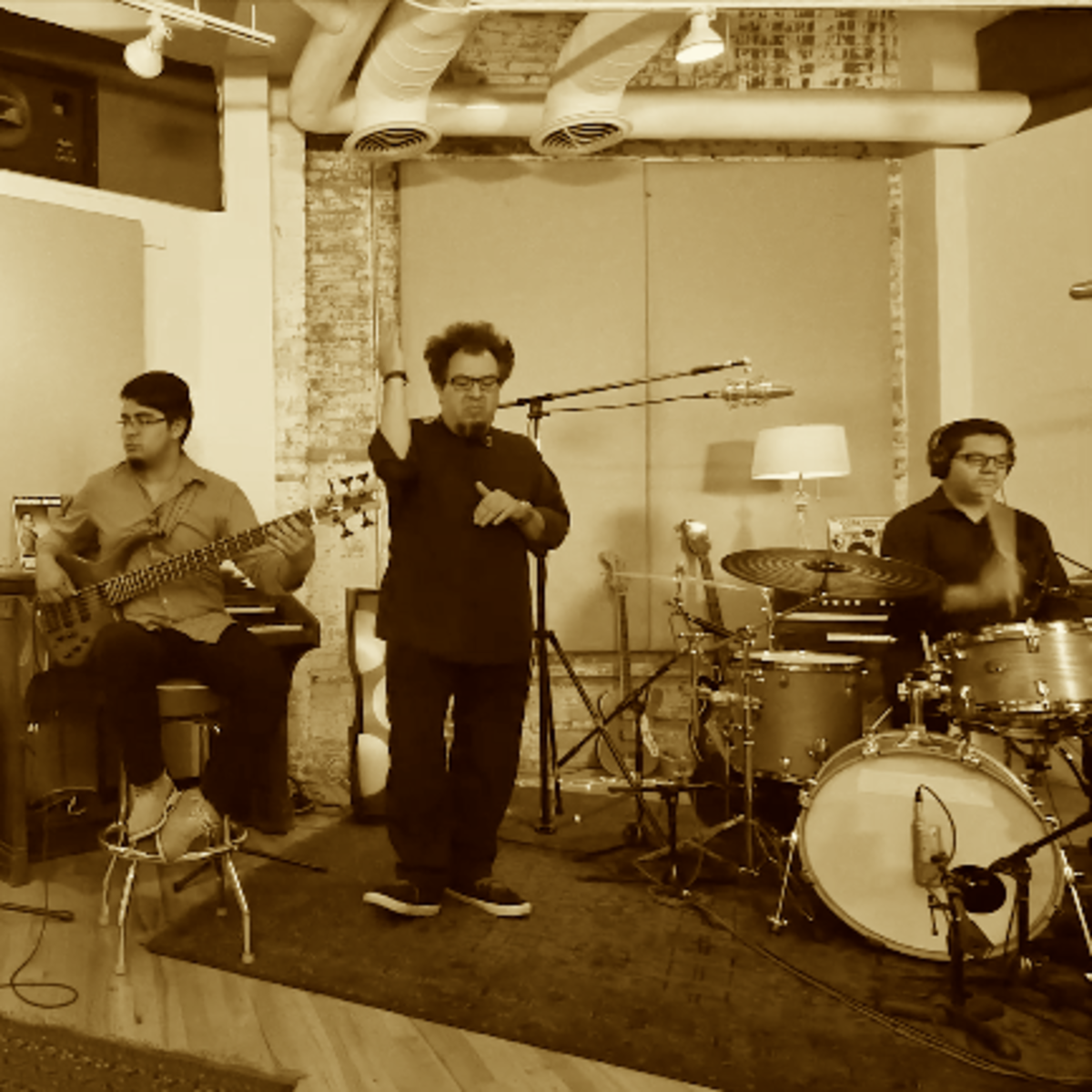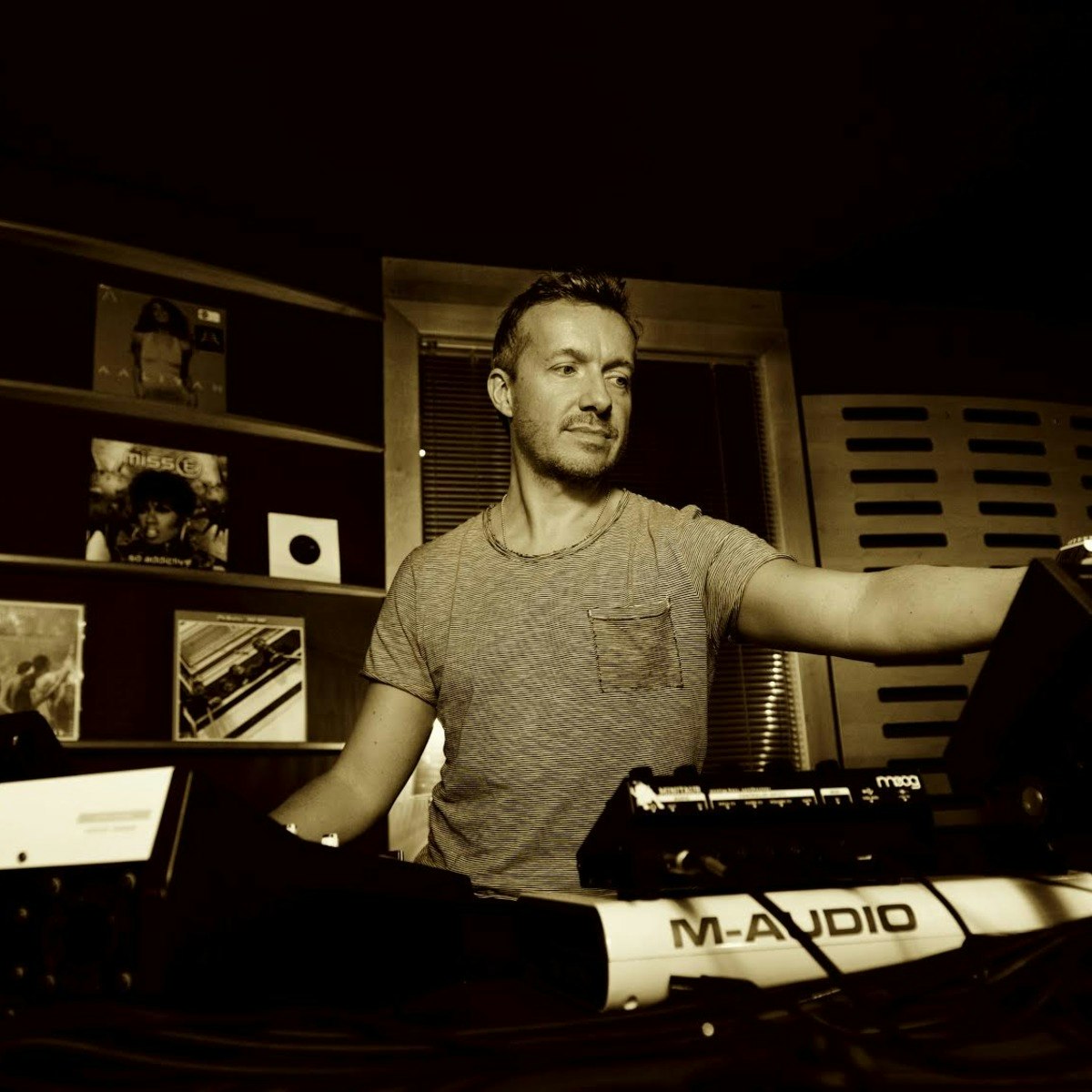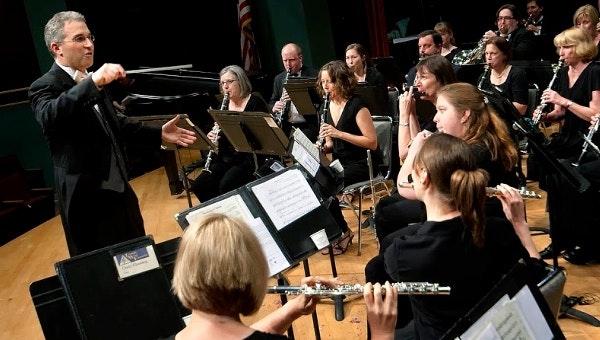Music Director
Exploring a Career as a Music Director
A Music Director is a pivotal figure in the world of music, responsible for the overall musical vision and quality of a performance group or production. They lead musicians, shape interpretations, and ensure that every note contributes to a cohesive and compelling artistic statement. This role often involves conducting, but extends beyond the podium to include programming, rehearsal planning, and sometimes administrative duties.
Working as a Music Director can be incredibly rewarding. Imagine guiding a symphony orchestra through a powerful Mahler symphony, shaping the sound of a Broadway musical's pit orchestra, or selecting the perfect score to elevate a film scene. It's a career that demands deep musical knowledge, strong leadership skills, and a passion for bringing music to life for audiences.
What Does a Music Director Do?
Defining the Role and Primary Responsibilities
At its core, a Music Director serves as the principal artistic leader for a musical ensemble or production. Their primary responsibility is to define and maintain the musical standards and interpretative direction. This involves selecting repertoire, planning rehearsal schedules, and leading rehearsals to achieve the desired musical outcome.
They are often the public face of the musical entity, communicating the artistic vision to performers, administrators, board members, and the audience. Depending on the context, they might audition new members, manage the music library, collaborate with composers or arrangers, and oversee the musical aspects of recordings or broadcasts.
The role requires a blend of artistic sensitivity and practical leadership. A Music Director must inspire musicians to perform at their best while managing the logistical complexities of preparing and presenting musical performances.
Where Music Directors Work
Music Directors find employment across a diverse range of industries. Symphony orchestras, opera companies, and ballet companies rely heavily on Music Directors to lead their artistic endeavors. Community orchestras and choirs also offer opportunities, often on a part-time basis.
In the realm of musical theatre, Music Directors are essential for leading pit orchestras, coaching singers, and ensuring musical continuity throughout a production's run. The film and television industry employs Music Directors (sometimes titled Music Supervisors) to oversee the selection, arrangement, and recording of scores.
Educational institutions, from universities to secondary schools, often employ Music Directors to lead bands, orchestras, and choral programs. Religious institutions also frequently hire Music Directors to manage music programs for services and special events. The specific duties can vary significantly depending on the size and nature of the employing organization.
Key Distinctions: Conductor, Composer, Music Director
While the roles can overlap, particularly in smaller organizations, there are key distinctions between a Music Director, a Conductor, and a Composer. A Conductor primarily focuses on leading an ensemble during rehearsals and performances, interpreting the score and unifying the musicians' playing through gesture and instruction.
A Composer is the creator of the musical work itself, writing the notes, harmonies, and rhythms that form the score. While some composers also conduct or direct their own works, their primary function is creation.
A Music Director often encompasses conducting duties but has broader responsibilities. They typically have significant input into repertoire selection (choosing *what* music is played), long-term artistic planning, and potentially personnel decisions. They are the ultimate authority on the musical interpretation and overall sound of the group they lead. Think of the Conductor as the leader on the field during the game, while the Music Director is often also the coach and general manager, setting the strategy and building the team.
A Glimpse into the Work Environment
The work environment for a Music Director is varied. Much time is spent in rehearsal spaces, working intensively with musicians. This requires focus, patience, and excellent communication skills. Performance venues, ranging from intimate churches to grand concert halls or recording studios, are also central workplaces.
Beyond rehearsals and performances, a significant portion of the job involves solitary work: studying scores, planning programs, and preparing for rehearsals. This often takes place in a home office or studio. Depending on the role, there may also be administrative tasks, requiring time in an office setting for meetings with staff, board members, or collaborators.
Travel can be a component, especially for guest conducting engagements or tours. The hours are often irregular, involving evenings and weekends for rehearsals and performances. It's a demanding but often exhilarating environment driven by deadlines and the pursuit of artistic excellence.
Historical Evolution of the Music Director Role
Roots in Tradition
The concept of a single figure guiding a musical performance has ancient roots, but the role resembling the modern Music Director emerged gradually. In the Baroque and Classical periods, the leader was often the composer themselves or the principal violinist (concertmaster) or keyboard player (Kapellmeister), directing from within the ensemble.
Figures like Johann Sebastian Bach served as Kapellmeister, overseeing music for church services and court functions, involving composition, training musicians, and directing performances. This reflects the early integration of composing, performing, and directing duties often found in precursors to the modern Music Director role.
As orchestras grew in size and complexity during the 18th and 19th centuries, the need for a dedicated, non-playing conductor became more apparent. This figure focused solely on leading the ensemble, shaping interpretation, and ensuring coherence, laying the groundwork for the specialized conducting aspect of music direction.
These foundational courses explore the rich history and context of Western music, providing essential background for understanding the evolution of musical leadership.
Modernization in Media and Entertainment
The 20th century brought significant changes with the rise of new media. The advent of film created a need for musical scores, leading to roles for composers, orchestrators, and conductors specializing in synchronizing music to picture. Music Directors in film often oversaw the entire musical process, from commissioning scores to conducting recording sessions.
Musical theatre developed its own distinct Music Director role, responsible for teaching music to the cast, conducting the pit orchestra, and maintaining musical quality throughout a show's run. This required adaptability and skills in various popular and theatrical musical styles.
The recording industry further specialized roles. While conductors remained crucial for orchestral recordings, the rise of studio producers often overlapped with traditional music direction, focusing on shaping the final recorded sound. Music Directors adapted, sometimes taking on producer roles or collaborating closely with them.
Understanding the music of pivotal figures like Stravinsky helps grasp the transition to modern musical language and its impact on directorial roles.
The Influence of Recording Technology
Recording technology profoundly impacted the Music Director's profession. It allowed for performances to be preserved, scrutinized, and disseminated widely, raising performance standards and audience expectations. Directors could now study interpretations meticulously and compare different approaches.
The studio environment presented new challenges and opportunities. Music Directors needed to understand microphone techniques, editing processes, and the nuances of balancing an ensemble for recording rather than live acoustics. The ability to achieve technical perfection on recordings became a key skill.
Furthermore, recordings created a vast historical archive, influencing programming choices and interpretive styles. Music Directors could engage with a wider repertoire and historical performance practices than ever before, shaping their artistic vision through the lens of recorded history.
These courses delve into music production, a critical skill influenced by recording technology.
Shapers of the Profession
Numerous individuals have shaped the modern understanding of a Music Director. Figures like Arturo Toscanini exemplified meticulous preparation and fidelity to the score, setting high standards for orchestral discipline and interpretation in the early-to-mid 20th century.
Leonard Bernstein broadened the role, becoming a charismatic public figure through television appearances (like his famous Young People's Concerts) and championing a wide range of repertoire, demonstrating the director's potential as an educator and cultural ambassador.
In musical theatre, figures like Harold Prince (though primarily a stage director) worked closely with Music Directors, influencing how music integrates with drama. Composers like Stephen Sondheim often had specific demands impacting the MD's role. In film, composers like John Williams often conduct their own scores, blurring lines, while dedicated music supervisors shape the overall soundtrack.
Contemporary figures like Gustavo Dudamel or Marin Alsop continue to evolve the role, emphasizing community engagement, educational outreach, and diverse programming alongside traditional conducting duties, reflecting the expanding responsibilities of a modern Music Director.
Core Skills and Competencies
Musical Literacy and Craft
Exceptional musical literacy is the bedrock of a Music Director's skill set. This includes the ability to read complex orchestral or vocal scores fluently, understanding not just the notes and rhythms but also the harmonic structure, instrumentation, and historical context. They must be able to hear the music internally while studying the score.
Skills in arranging and orchestration are often crucial, allowing the director to adapt pieces for available instrumentation or modify parts for balance. A deep understanding of different instruments' capabilities, ranges, and timbres is essential for effective rehearsal and interpretation.
A well-trained ear is paramount – for discerning intonation issues, rhythmic inaccuracies, balance problems, and subtle details of articulation and dynamics within the ensemble.
These courses provide comprehensive training in music theory, harmony, and musicianship – fundamental building blocks for any Music Director.
Leadership and Communication
A Music Director is, fundamentally, a leader. They must be able to communicate their musical ideas clearly and effectively to a diverse group of musicians, inspiring confidence and fostering a collaborative environment. This requires strong verbal and non-verbal communication skills, including expressive conducting technique.
Effective rehearsal technique is vital. This means efficiently diagnosing problems, providing constructive feedback, managing time effectively, and maintaining focus and energy throughout long sessions. Building rapport and trust with ensemble members is key to achieving peak performance.
Beyond the ensemble, Music Directors often communicate with administrators, board members, donors, and audiences. They need to articulate the artistic vision, advocate for resources, and engage stakeholders in the organization's mission.
This course focuses specifically on the practicalities of leading rehearsals.
This book offers insights into the mindset of a prominent conductor and director.
Budgeting and Project Management
While artistic vision is primary, practical management skills are often required, especially in roles with administrative components. Music Directors may be involved in season planning, which requires balancing artistic goals with financial realities.
Understanding budgeting principles helps in making informed decisions about repertoire (considering instrumentation size, rental costs, royalty fees), guest artists, and special projects. They may need to collaborate with administrative staff to develop and adhere to budgets.
Project management skills come into play when organizing tours, recording sessions, or large-scale productions. This involves coordinating logistics, managing timelines, and ensuring resources are used effectively to bring complex musical projects to fruition.
Adaptability Across Genres and Settings
Versatility is a significant asset for a Music Director. While specialization exists (e.g., focusing on early music, contemporary opera, or pops concerts), the ability to work effectively across different musical styles and genres broadens opportunities.
A director leading a symphony orchestra might need to shift from a Beethoven symphony to a film score medley or a contemporary commission. A theatre Music Director must navigate styles ranging from classic Broadway to rock musicals or operetta. Understanding the stylistic conventions, performance practices, and unique demands of various genres is crucial.
Adaptability also extends to different working environments – collaborating with professional union musicians one week, and leading amateur community players or student ensembles the next. Each setting requires different pedagogical approaches and leadership styles.
These courses explore diverse musical styles, from classical analysis to jazz improvisation and popular music pedagogy, enhancing adaptability.
Formal Education Pathways
Relevant Undergraduate Degrees
A bachelor's degree in music is typically the minimum educational requirement for aspiring Music Directors. Common undergraduate majors include Music Performance (on an instrument or voice), Music Education, Music Theory, or Composition. Each provides a strong foundation in musicianship, history, and analysis.
Performance majors develop high-level instrumental or vocal skills and ensemble experience. Music Education majors gain pedagogical training and often have opportunities to conduct student ensembles. Theory and Composition majors develop deep analytical and structural understanding of music.
Regardless of the specific major, undergraduate studies should include extensive coursework in music theory, aural skills, music history, conducting, and participation in various ensembles. Developing keyboard proficiency is also highly advantageous for score study and rehearsals.
These comprehensive theory courses are excellent starting points or supplements for undergraduate study.
Graduate Programs and Specialization
For many aspiring Music Directors, particularly those aiming for positions with professional orchestras, opera companies, or university faculties, a graduate degree is essential. Master's and doctoral programs in Conducting (orchestral, choral, or wind ensemble) are the most direct route.
These specialized programs offer intensive podium time, advanced score study seminars, repertoire analysis, and performance practice research. Students work closely with experienced faculty conductors and lead university ensembles, gaining critical hands-on experience in a structured environment.
Other relevant graduate degrees might include collaborative piano (especially for opera or vocal coaching paths), musicology (for those interested in historically informed performance or research-heavy roles), or composition. The key is finding a program that offers significant conducting opportunities and mentorship.
The Importance of Mentorship and Masterclasses
Formal education provides the foundation, but mentorship is crucial for developing the nuanced skills of a Music Director. Studying privately with experienced conductors provides personalized feedback and insights that go beyond the classroom.
Attending and participating in conducting masterclasses offers exposure to different teaching styles and philosophies. These intensive workshops provide opportunities to conduct ensembles under the guidance of renowned maestros, receive peer feedback, and network with other aspiring conductors.
Building relationships with mentors can lead to assistant conducting opportunities, valuable recommendations, and career guidance. Seeking out diverse mentors can provide a broader perspective on technique, repertoire, and the profession itself.
Research Opportunities in Musicology and Pedagogy
Engaging with musicological research enhances a Music Director's understanding of historical context, performance practices, and analytical approaches. This knowledge informs interpretive decisions and program note writing.
Research in music pedagogy (the art of teaching) is particularly relevant for directors working in educational settings or leading community ensembles. Understanding effective teaching strategies, rehearsal techniques, and musician development improves leadership effectiveness.
Graduate programs often involve research components, such as theses or dissertations. Pursuing research projects, attending academic conferences, and reading scholarly journals deepens intellectual engagement with the art form and contributes to a well-rounded directorial profile.
This book provides a look into historical musicology.
This course explores music education approaches.
Career Progression for Music Directors
Typical Entry Points
Entering the field often involves starting in assistant or associate roles. Positions like Assistant Conductor, Associate Conductor, Choir Master, or Cover Conductor provide invaluable experience working alongside established Music Directors, learning repertoire, and occasionally leading rehearsals or performances.
In educational settings, directing ensembles at the high school or community college level can be a starting point. For musical theatre, roles like Assistant Music Director, rehearsal pianist, or pit musician offer pathways into the field.
Leading community orchestras or choirs, even on a part-time or volunteer basis, builds conducting experience and repertoire knowledge. These roles demonstrate leadership capability and commitment, which are essential for advancing.
Mid-Career Advancement
Advancement typically involves moving into principal Music Director roles with larger or more prestigious organizations. This might mean progressing from an assistant role to leading a regional orchestra, a professional choir, or becoming the head of a university music program.
Building a reputation through successful performances, innovative programming, and positive reviews is key. Guest conducting appearances with other ensembles can significantly raise visibility and lead to opportunities.
In some fields, like opera or musical theatre, advancement might involve moving to larger houses, working on Broadway, or becoming associated with high-profile productions. Specializing in a particular repertoire or style can also create niche opportunities for advancement.
Factors Influencing Promotion
Several factors influence promotion prospects. Demonstrating exceptional musicianship, clear conducting technique, and effective leadership are fundamental. A broad and deep knowledge of repertoire is essential for programming and interpretation.
Critical acclaim, positive audience response, and the ability to build an ensemble's quality and reputation are significant factors. Strong communication and interpersonal skills, enabling effective collaboration with musicians, administration, and board members, are crucial.
Networking within the industry, developing relationships with artists, managers, and administrators, also plays a role. Success in conducting competitions can sometimes provide a fast track to visibility and initial opportunities.
Transition Paths to Administrative Leadership
Experienced Music Directors sometimes transition into broader artistic or administrative leadership roles. Positions like Artistic Director, General Director (in opera), or Dean of a music school leverage deep artistic knowledge alongside strategic planning and management skills.
These roles often involve less time conducting and more focus on long-term vision, fundraising, programming oversight, and overall organizational leadership. The transition requires developing skills in areas like financial management, marketing, and governance.
Some Music Directors may also move into consulting, arts advocacy, or higher education administration, utilizing their extensive experience to shape the future of musical organizations and education.
Ethical Challenges in Music Direction
Balancing Artistry and Commercial Demands
One of the most common ethical tensions for Music Directors is balancing artistic integrity with the commercial realities of running a performing arts organization. Programming choices may pit adventurous or lesser-known works against popular "warhorses" needed to sell tickets and satisfy donors.
Decisions about repertoire, casting, or interpretation might be influenced by financial pressures, audience expectations, or board preferences. Maintaining artistic standards while ensuring financial viability requires careful navigation and transparent communication.
This challenge highlights the need for Music Directors to be articulate advocates for their artistic vision while also understanding the practical constraints and stakeholder interests involved.
This book delves into the expressive core of music, relevant to defending artistic choices.
Representation and Diversity in Programming
Increasingly, Music Directors face ethical considerations regarding representation and diversity in their programming and personnel. Historically, the standard repertoire has been dominated by white European male composers.
There is a growing imperative to actively seek out and include works by composers from underrepresented backgrounds, including women and people of color. This requires proactive research and a commitment to expanding the canon beyond traditional boundaries.
Ethical considerations also apply to casting and hiring practices within the ensemble, aiming for greater diversity and inclusivity on stage and behind the scenes. Balancing these goals with established audition processes and artistic standards presents ongoing challenges.
This course examines the intersection of music and social issues.
Copyright and Adaptation Considerations
Music Directors must be knowledgeable about copyright law, especially when arranging music, commissioning new works, or using existing scores. Unauthorized arrangements or performances can lead to legal issues.
When adapting works – perhaps for different instrumentation or performance contexts – ethical questions arise about fidelity to the composer's original intent versus the creative freedom of the director or arranger. Clear communication and permissions are essential when dealing with living composers or copyrighted materials.
Understanding performance rights, grand rights (for theatrical works), and synchronization rights (for film/video) is crucial, particularly for directors working across different media.
This course specifically addresses copyright in the music business.
Labor Practices and Ensemble Management
Managing an ensemble involves navigating relationships with musicians, who may be union members, contractors, students, or volunteers. Ethical leadership requires fair treatment, clear communication of expectations, and respect for musicians' time and contributions.
Issues related to audition processes, contract negotiations, working conditions, and disciplinary actions must be handled professionally and equitably. Creating a positive and respectful rehearsal environment is an ethical responsibility.
Balancing the demands of achieving high artistic standards with the well-being of the musicians requires sensitivity and strong interpersonal skills. Favoritism, unclear expectations, or abusive behavior represent significant ethical failings for a Music Director.
Digital Tools for Aspiring Music Directors
Score Notation Software
Proficiency in music notation software is almost essential for modern Music Directors. Programs like Finale, Sibelius, or the free and open-source MuseScore allow directors to create, edit, and print scores and parts.
These tools are invaluable for making minor corrections, creating custom arrangements, transposing parts, or extracting sections for rehearsal purposes. They can also be used for score study, allowing directors to hear playback (albeit often mechanical) and visualize musical structures.
Familiarity with at least one major notation program streamlines many tasks and facilitates communication with composers, arrangers, and librarians.
These courses offer guidance on using popular notation software.
Digital Audio Workstations (DAWs)
Digital Audio Workstations (DAWs) like Logic Pro, Pro Tools, Ableton Live, or GarageBand are primarily tools for recording and music production, but they can be useful for Music Directors too.
DAWs can be used to create mock-ups of arrangements or compositions, providing a better sense of the final sound than basic notation software playback. They are also helpful for creating practice tracks or click tracks for rehearsals, especially in popular music or musical theatre settings.
For directors involved in film scoring or electronic music, proficiency in a DAW is often a necessity for integrating musical elements and producing final tracks.
These courses cover music production using popular DAWs.
Virtual Rehearsal Platforms
The recent past saw a rise in virtual rehearsal platforms designed to allow musicians to collaborate remotely. Tools like JamKazam or Soundjack attempt to minimize latency (delay) to enable real-time playing.
While these platforms offer potential for remote coaching or sectional rehearsals, significant technical challenges remain, particularly regarding latency and audio quality for large ensembles. They are generally not a substitute for in-person rehearsals for achieving nuanced ensemble playing.
However, familiarity with video conferencing tools (Zoom, Teams) combined with audio sharing capabilities remains useful for remote score study sessions, discussions with collaborators, or online coaching.
AI-Assisted Composition and Arrangement Tools
Artificial intelligence is beginning to make inroads into music creation. AI tools can assist with tasks like generating harmonic progressions, suggesting melodic ideas, or even creating basic arrangements based on input parameters.
While currently more relevant for composers and producers, Music Directors should be aware of these emerging technologies. AI might eventually offer tools for quickly generating score reductions, creating practice accompaniments, or analyzing complex scores.
Understanding the capabilities and limitations of AI in music will be increasingly important as these tools evolve and potentially impact workflows related to arrangement, programming, and even interpretation.
Global Opportunities and Market Trends
Regional Demand Variations
The demand for Music Directors varies significantly by region and specialization. Major metropolitan areas with established symphony orchestras, opera houses, and theatre districts typically offer more opportunities for classical and theatrical directors. Cities known as media production hubs (like Los Angeles or London) have higher demand for film/TV music roles.
Opportunities in educational music direction exist wherever there are schools and universities with music programs. Religious music direction roles are widespread but often part-time. Community ensemble leadership positions can be found in towns and cities of various sizes.
Researching the specific cultural landscape of a region is important. Some areas have a stronger tradition of choral music, while others might have more vibrant band or orchestral scenes.
Impact of Streaming Platforms
The rise of streaming platforms (Spotify, Apple Music, Netflix, etc.) has had a mixed impact. For recorded music, it has changed revenue streams, potentially affecting budgets for recording projects led by Music Directors. Royalties from streaming are often lower than physical sales or broadcast.
However, the proliferation of content on streaming video platforms (Netflix, Amazon Prime, Disney+, etc.) has increased the demand for original scores and music supervision, creating opportunities for directors working in film and television music.
Streaming also allows for wider dissemination of live performance recordings or broadcasts, potentially increasing the visibility of Music Directors and their ensembles beyond their local audience.
Emerging Markets
While traditional centers in North America and Europe remain dominant, there is growing activity and investment in classical music and performing arts in parts of Asia (e.g., China, South Korea, Singapore) and the Middle East.
New concert halls, orchestras, and opera houses are being established in these regions, creating potential opportunities for experienced Music Directors, guest conductors, and educators. These markets often seek international talent while also nurturing local musicians.
Navigating these opportunities may require cultural adaptability, language skills, and a willingness to work internationally.
Post-Pandemic Shifts in Live Performance
The COVID-19 pandemic significantly disrupted live performances, forcing organizations to explore digital formats and re-evaluate financial models. While live audiences are returning, some long-term shifts may persist.
There is increased interest in high-quality streaming of live concerts, potentially creating new roles or skill requirements related to digital production. Financial pressures on arts organizations may impact budgets for programming, staffing, and guest artists.
Audience expectations and behaviors may also have shifted, potentially influencing programming choices towards familiar repertoire or shorter concert formats. Music Directors need to be adaptable and innovative in navigating this evolving landscape. According to reports like those tracking arts participation, understanding audience trends is crucial for organizational sustainability, a concern relevant to Music Directors involved in planning. You might find relevant data from sources like the National Endowment for the Arts research pages (note: arts.gov is a .gov domain often related to US arts funding and research).
Music Director in the Age of AI
Automation Threats
Certain tasks related to music direction could potentially be impacted by AI automation. Basic arranging, score reduction, or transcription work might become faster or partially automated using AI tools, potentially affecting demand for human arrangers or copyists who support Music Directors.
AI analysis tools could eventually assist in identifying potential performance issues in scores or even suggest basic interpretive options, though nuanced artistic judgment remains uniquely human.
However, the core elements of leadership, artistic interpretation, real-time ensemble interaction, and nuanced communication required for conducting and directing are unlikely to be automated in the foreseeable future. The human element remains central to musical performance.
AI as a Collaborative Tool
Rather than purely a threat, AI could become a powerful collaborative tool for Music Directors. AI might assist in repertoire discovery, suggesting lesser-known works based on programming constraints or desired styles.
AI could generate practice materials tailored to specific ensemble needs or assist in creating realistic mock-ups for new compositions or arrangements. For directors involved in composition, AI might offer starting points or help overcome creative blocks.
The key will be leveraging AI to enhance human creativity and efficiency, rather than replacing the core artistic decision-making process.
Ethical Implications of Algorithm-Driven Programming
If AI tools become sophisticated enough to suggest or even determine concert programs based on algorithms optimizing for audience appeal or other metrics, significant ethical questions arise. Who controls the algorithms? What biases are embedded within them?
Over-reliance on algorithmic programming could lead to homogenization of repertoire, marginalization of new or challenging works, and a reduction in the Music Director's curatorial role. Maintaining artistic control and ensuring diverse, meaningful programming in the face of potential algorithmic influence will be an ethical challenge.
Transparency about how AI is used in programming decisions and ensuring human oversight are critical considerations.
Skill Adaptation Strategies
To thrive in an AI-influenced future, Music Directors should focus on uniquely human skills: deep artistic interpretation, nuanced communication, collaborative leadership, and pedagogical expertise. Cultivating musical versatility and adaptability will also be crucial.
Developing digital literacy, including an understanding of AI capabilities and limitations relevant to music, will be advantageous. Learning to effectively use AI tools for tasks like score analysis or creating mock-ups could enhance productivity.
Emphasizing the live performance experience and the director's role in shaping that unique, unrepeatable event will remain paramount. Continuous learning and adaptation will be key to navigating technological disruption.
Frequently Asked Questions
Can you become a Music Director without formal training?
While possible, particularly in less formal settings like community groups or certain popular music contexts, becoming a Music Director without significant formal training is extremely challenging, especially for roles in classical music, opera, or higher education. The depth of musical knowledge (theory, history, score reading, instrumentation) and conducting technique required typically necessitates structured study.
Extensive practical experience, natural talent, and strong leadership skills can sometimes compensate for a lack of formal degrees, but a solid musical education provides a crucial foundation. Most professional positions list formal qualifications as requirements.
However, passion and dedication can lead to fulfilling musical leadership roles in community settings or specific genres even without advanced degrees. Starting small, seeking mentorship, and continuously learning are key.
Online courses can be a valuable resource for building foundational knowledge or supplementing practical experience, regardless of formal degree status. Platforms like OpenCourser offer access to courses on music theory, history, and even production skills.
What are typical salary ranges?
Salary ranges for Music Directors vary enormously based on factors like the type and budget of the organization, geographic location, the director's experience and reputation, and whether the position is full-time or part-time.
Top conductors of major international orchestras can earn substantial six- or even seven-figure incomes, but these positions are extremely rare. Music Directors of regional professional orchestras might earn salaries comparable to other non-profit executive directors or university professors, often in the mid-five to low-six figure range.
Positions in community orchestras, schools, or churches are often part-time and may offer stipends ranging from a few thousand dollars to tens of thousands per year. Musical theatre salaries depend heavily on the production's scale (Broadway vs. regional vs. community). Reliable, specific data can be hard to find, but resources like the US Bureau of Labor Statistics (BLS) provide general occupational data for 'Music Directors and Composers', though this aggregates diverse roles.
It's important to have realistic expectations; many Music Directors supplement their income through teaching, performing, or other related work, especially early in their careers.
What are the key challenges when transitioning from performer to director?
Transitioning from being an accomplished performer to a Music Director involves a significant shift in focus and skill set. While performance skills are foundational, directing requires moving from individual execution to guiding the collective efforts of an entire ensemble.
Key challenges include developing effective conducting technique (communicating musical ideas clearly through gesture), mastering score study (understanding the entire musical architecture, not just one part), and honing leadership and communication skills (inspiring, motivating, and correcting musicians constructively).
Another challenge is learning to listen differently – focusing on the overall balance, intonation, and interpretation of the group, rather than just one's own playing. It also requires developing pedagogical skills to efficiently diagnose and solve ensemble problems during rehearsals.
These books offer perspectives that can be valuable for those making the transition.
What is the demand outlook in traditional vs. digital media?
The demand outlook is complex and varies by sector. In traditional areas like symphony orchestras and opera, the number of full-time, high-level positions remains limited and highly competitive. Financial pressures on arts organizations can impact stability and growth.
However, opportunities exist in regional orchestras, community ensembles, educational institutions, and churches, though often on a part-time basis. The demand for skilled educators who can direct school or university ensembles remains relatively stable.
In digital media (film, TV, video games), the demand for music scoring and supervision has grown with the expansion of content creation. This requires skills in composing, arranging, production, and often technology like DAWs. Roles might be project-based rather than permanent positions.
Overall, versatility, strong networking, and potentially combining traditional directing with media or educational work may offer the most sustainable career path.
What are essential networking strategies for early-career professionals?
Networking is crucial in the music world. Attending conferences (like those held by the League of American Orchestras or regional music education associations) provides opportunities to meet established professionals and peers.
Participating in conducting workshops and masterclasses is not only educational but also a prime networking environment. Building genuine relationships with mentors, teachers, and colleagues is essential; these connections can lead to recommendations and opportunities.
Actively attending performances, introducing oneself to conductors and administrators (when appropriate), and engaging respectfully with the broader musical community helps build visibility. Utilizing online platforms like LinkedIn professionally and maintaining a personal website showcasing experience and recordings can also be effective.
These courses focus on building a music career, touching on branding and strategy which often involve networking.
Are there age-related considerations in career entry and progression?
Conducting and music direction are fields where experience is highly valued, and many top conductors achieve major positions later in their careers. It takes time to build repertoire knowledge, refine technique, and develop interpretive depth.
While prodigies exist, most successful Music Directors follow a path involving extensive education and assistant roles, meaning significant career progression often occurs in one's 30s, 40s, and beyond. There isn't typically an upper age limit, and many conductors remain active well into their later years.
However, the early career stages can be demanding, requiring energy for travel, long hours, and potentially lower pay while gaining experience. Starting the intensive training relatively early can be advantageous, but career changes into music direction later in life are certainly possible, provided the individual acquires the necessary skills and experience.
Embarking on a path toward becoming a Music Director is a challenging yet potentially deeply fulfilling journey. It demands immense dedication, continuous learning, and a profound love for music and collaboration. Whether leading a world-class orchestra or a passionate community choir, the opportunity to shape musical experiences is a unique privilege. For those considering this path, thorough preparation, realistic expectations, and persistent effort are essential.



























